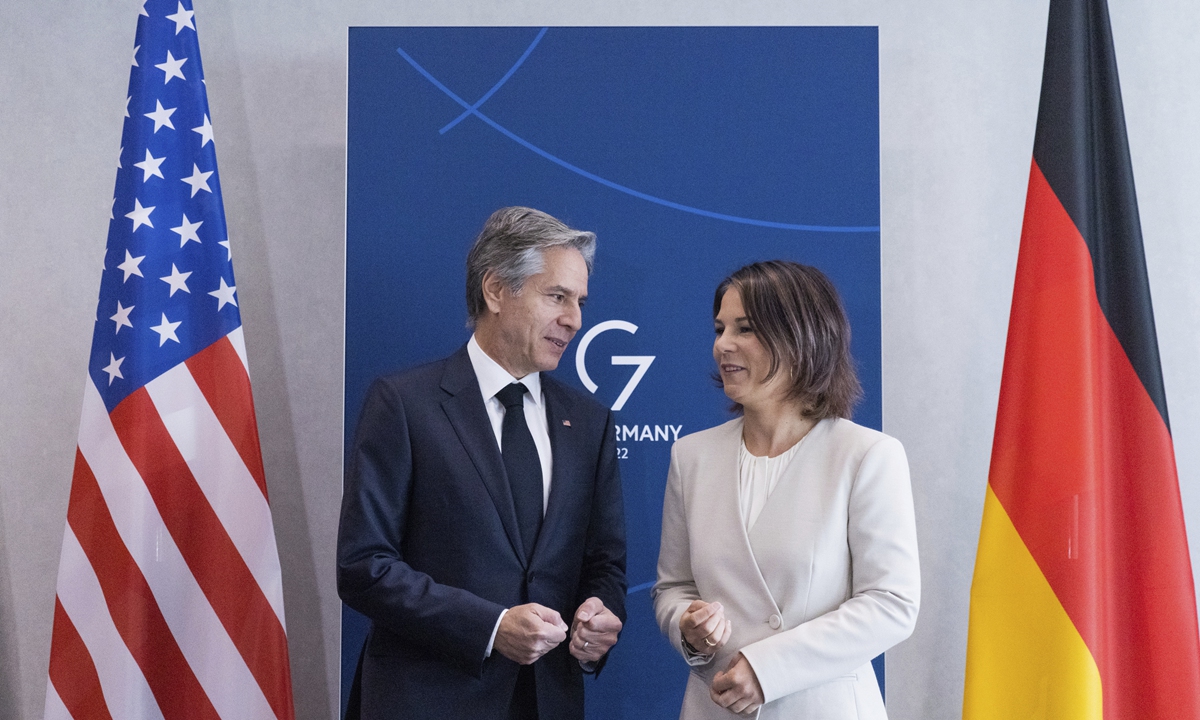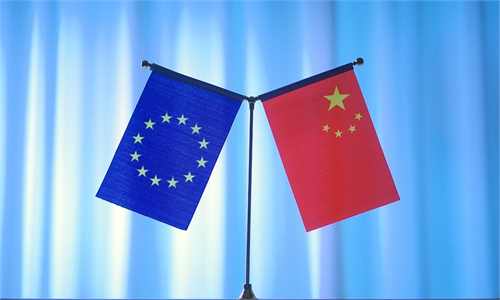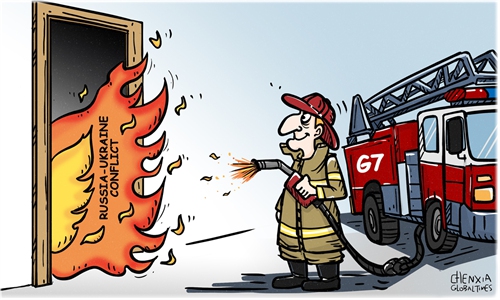
German Foreign Minister Annalena Baerbock (right) meets US Secretary of State Antony Blinken for talks at the meeting of G7 foreign ministers on November 3, 2022. Photo: VCG
Foreign ministers of the Group of Seven (G7) met in Germany on Thursday to discuss the prolonged Russia-Ukraine conflict and the bloc's further plans to support Kiev at a time when both NATO and Russia are holding nuclear drills for deterrence, but there are mounting doubts among observers over the sustainability of Western aid to Ukraine given the widening rifts inside the Western camp.
The US State Department revealed that the G7 ministers will discuss a range of pressing global challenges, including the G7's sustained support for a democratic, sovereign, and prosperous Ukraine.
But observers believe such aid is increasingly difficult to sustain as Europe is depleted of military stocks and deeply plagued by economic woes, and while G7 nations have largely followed through with their vow to punish Russia, as an AP report admitted, "the sanctions have done little to deter Moscow."
Cui Heng, an assistant research fellow with the Center for Russian Studies of East China Normal University, told the Global Times on Thursday that the support from G7 to Ukraine has already reached its limit, and whether those countries will continue supporting Ukraine depends on not only their willingness but also their capabilities.
Strong voices are emerging from the US and Europe advocating negotiations with Russia, as the Ukraine crisis, which has now entered its ninth month, has exhausted both sides, Cui said. There are also growing worries, among Europeans in particular, that further escalation of the crisis could threaten the security of the continent, the expert said.
G7 nations are now facing an economic downturn due to severe inflation, and pouring more money to support Ukraine will surely face opposition domestically, Cui said.
The US, which tops the list of Western aid to Ukraine, is a prime example.
The US has poured $52 billion into Ukraine since January 2022, half of which has been in the form of military commitments, according to a database maintained by the Kiel Institute for the World Economy.
But the situation could change after the midterm elections. If Republicans win the House, their pledge is to take a hard look at the money the US is spending to help foot the bill, CNN reported.
G7's sanction package against Russia has basically been emptied, and the diminishing marginal utility indicated that adding more sanctions will barely constitute a real deterrence to Russia, Cui said.
The crisis has entered a phase in which nuclear conflict is being more frequently discussed. Both NATO and Russia have demonstrated these capabilities, but they also understand that nuclear clashes must be avoided, the expert said.
NATO and Russia held nuclear drills on October 17 and 26, respectively, amid the prolonged Ukraine crisis.
The West believes that Russia, claiming that Ukraine is preparing to use "dirty bombs," might respond with nuclear weapons.
The Russian foreign ministry on Wednesday said the world's "top priority" should be to avoid a clash of nuclear powers. Moscow's nuclear doctrine is "purely defensive in nature," only allowing the Kremlin to use such weapons in the event of nuclear aggression or "when the very existence of our state is threatened."



